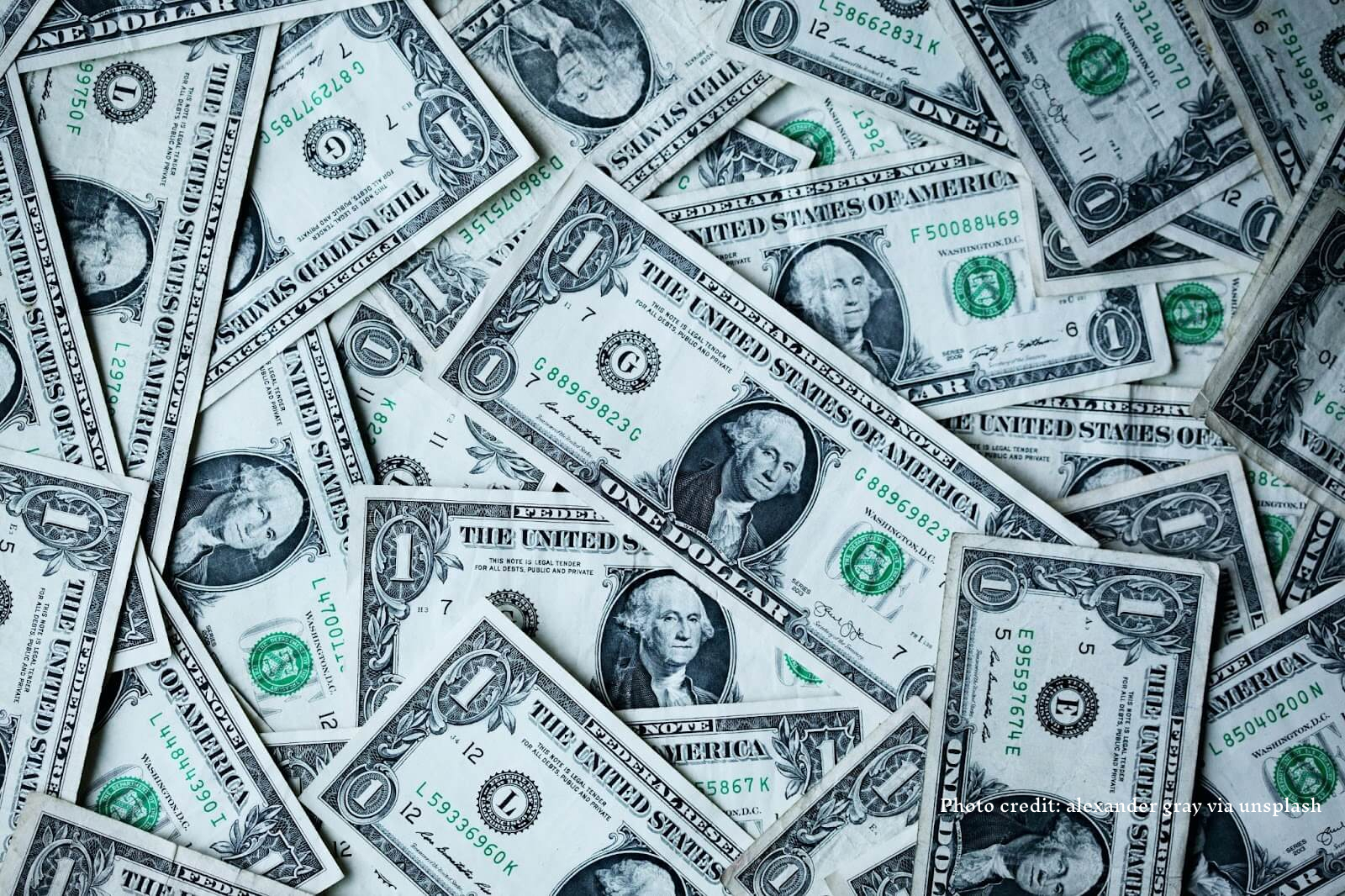The get-rich-quick scheme: the easy way to make money from home—that never works. Almost never. Here are five stories of get-rich-quick schemes that actually paid off.
Catch Me If You Can
Perhaps the most famous successful get-rich-quick scheme, thanks to Leonardo DiCaprio and Tom Hanks, is Frank Abagnale, Jr.’s check forging adventure. The movie follows DiCaprio as Abagnale, Jr. impersonating a pilot, substitute teacher and other roles. The real Abagnale, Jr. also created fake identities as a physician and an attorney, claiming he legitimately passed the Louisiana bar exam.
Abagnale’s real profits came from check forgery. He estimated that he cashed $2.5 million worth of forged checks during five years in the 1960s. He made some of it by printing his bank account number on deposit slips so that other people accidentally made deposits into his account. Most of his success came from his skill at printing near-perfect fakes of payroll and other checks and persuading banks to give him the cash in advance.
Of course, Abagnale didn’t make it out unscathed. He spent time in prisons in several countries, including a twelve-year sentence in U.S. federal prison. But $2.5 million (almost $20 million in 2016 dollars) is still a heavy stack of money to weigh against the less than five years he served of his federal sentence. And his forging experience has landed him lucrative speaking gigs and fraud-prevention jobs. So, yeah, successful. (Please don’t do this. There are other ways to get rich without being a criminal.)
Jet.com
Online retail startup Jet.com held a contest. Not a “win $100 in gift cards for signing up ten friends” contest, but a “win 100,000 shares of the company for signing up the most people” contest. That’s quite a prize, even for a company whose shares haven’t gone public yet. And, like so many other online money-making “games”—poker, fantasy football, you know the rest—the real winners are the professionals, the people who make it a full-time job.
That’s what Eric Martin did. Martin, from York, PA, had the idea to basically crowd-fund his own win: he tried recruiting sign-ups from Facebook and other social media outlets, but with little success. He eventually tried websites that offer prizes for users who sign up for things. After investing about $18,000 in advertising on those websites, he had 8,000 sign-ups in 3 weeks.
And he won. Awaiting a Jet.com IPO, Martin can only estimate the value of his 100,000 shares. One estimate values his ownership at $10 to 20 million. That’s over 100,000% return. And that’s quite a win.
Pudding
Another ingenious exploit of a company contest. Healthy Choice pudding offered a mail-in rebate in 1999, giving away 500 frequent flyer miles for every 10 bar codes that a person mailed in. David Phillips was one of those people.
He did some calculations and found that, by buying the 25¢ individual cups and sending them in during the double-points month, he could earn 1,000 miles for every $2.50 worth of pudding. He eventually spent about $3,000 on pudding and earned 1.25 million miles. The kicker: those miles were worth $150,000, a 5,000% return.
The Brooklyn Bridge
Gregor MacGregor pulled off one of the biggest and most destructive get-rich-quick cons in history. In 1822, he returned to England after fighting in South America and announced that he was the prince of the land of Poyais off the coast of Honduras. He wrote a constitution, drafted banking systems, even created a guidebook, all to attract investors and colonists to the fertile country.
MacGregor raised £200,000 ($250,000) in direct investments and the market value of the bonds he sold rose to £3.6 billion, or $4.5 billion, in today’s currency. Not only that, he also convinced seven ships of settlers to prepare to sail to Poyais. The first two left harbor in 1823 and journeyed across the Atlantic to what they found to be a completely deserted jungle. Only a third of the original colonists survived.
MacGregor fled to France and what did he do there? He started his scheme again and gathered a new fleet of French colonists to make the same journey. But the French government investigated and sent MacGregor to prison. His success, though, is infamous and the land he called Poyais remains a wilderness.
The Wolf of Wall Street
Yep, another successful get-rich-quick scheme adapted into a film with Leonardo DiCaprio in the lead role. DiCaprio plays Jordan Belfort, the stock broker who started selling penny stocks and eventually made millions of dollars inflating penny stock prices and selling them through his firm, Stratton Oakmont.
At its peak, the brokerage firm employed over a thousand brokers and issued stocks worth around $1 billion. As anyone who’s seen the movie knows, Belfort found himself, like several others on this list, in prison. He only served 22 months in prison but faces a $100 million fine. That’s okay, though. In 2014 he was making $30,000 per speaking engagement and he claimed that, with the royalties from the Scorsese film, he’d make upwards of $100 million in that year, alone.
It Can Happen
There you have it: once in a blue moon, a get-rich-quick scheme might pay off—and it might pay off in a huge way. You might be looking at a couple years of prison time, but the book deals and lecture tours will give you a salary once you’re out. Oh, and call up Leo: he’s in the middle of his post-Oscar celebration and he’s done with gritty, hairy characters. He’s looking for the next witty millionaire to play on screen, so take advantage of those Hollywood royalties to supplement your income.
Want a jail-free scheme that the Internet makes potentially easy? Go to your favorite crowd-funding site and ask 1,000,000 people for $1 each. Just don’t forget to say thank you.
string(6382) "
The get-rich-quick scheme: the easy way to make money from home—that never works. Almost never. Here are five stories of get-rich-quick schemes that actually paid off.
Catch Me If You Can
Perhaps the most famous successful get-rich-quick scheme, thanks to Leonardo DiCaprio and Tom Hanks, is Frank Abagnale, Jr.'s check forging adventure. The movie follows DiCaprio as Abagnale, Jr. impersonating a pilot, substitute teacher and other roles. The real Abagnale, Jr. also created fake identities as a physician and an attorney, claiming he legitimately passed the Louisiana bar exam.
Abagnale's real profits came from check forgery. He estimated that he cashed $2.5 million worth of forged checks during five years in the 1960s. He made some of it by printing his bank account number on deposit slips so that other people accidentally made deposits into his account. Most of his success came from his skill at printing near-perfect fakes of payroll and other checks and persuading banks to give him the cash in advance.
Of course, Abagnale didn't make it out unscathed. He spent time in prisons in several countries, including a twelve-year sentence in U.S. federal prison. But $2.5 million (almost $20 million in 2016 dollars) is still a heavy stack of money to weigh against the less than five years he served of his federal sentence. And his forging experience has landed him lucrative speaking gigs and fraud-prevention jobs. So, yeah, successful. (Please don't do this. There are other ways to get rich without being a criminal.)
Jet.com
Online retail startup Jet.com held a contest. Not a "win $100 in gift cards for signing up ten friends" contest, but a "win 100,000 shares of the company for signing up the most people" contest. That's quite a prize, even for a company whose shares haven't gone public yet. And, like so many other online money-making "games"—poker, fantasy football, you know the rest—the real winners are the professionals, the people who make it a full-time job.
That's what Eric Martin did. Martin, from York, PA, had the idea to basically crowd-fund his own win: he tried recruiting sign-ups from Facebook and other social media outlets, but with little success. He eventually tried websites that offer prizes for users who sign up for things. After investing about $18,000 in advertising on those websites, he had 8,000 sign-ups in 3 weeks.
And he won. Awaiting a Jet.com IPO, Martin can only estimate the value of his 100,000 shares. One estimate values his ownership at $10 to 20 million. That's over 100,000% return. And that's quite a win.
Pudding
Another ingenious exploit of a company contest. Healthy Choice pudding offered a mail-in rebate in 1999, giving away 500 frequent flyer miles for every 10 bar codes that a person mailed in. David Phillips was one of those people.
He did some calculations and found that, by buying the 25¢ individual cups and sending them in during the double-points month, he could earn 1,000 miles for every $2.50 worth of pudding. He eventually spent about $3,000 on pudding and earned 1.25 million miles. The kicker: those miles were worth $150,000, a 5,000% return.
The Brooklyn Bridge
Gregor MacGregor pulled off one of the biggest and most destructive get-rich-quick cons in history. In 1822, he returned to England after fighting in South America and announced that he was the prince of the land of Poyais off the coast of Honduras. He wrote a constitution, drafted banking systems, even created a guidebook, all to attract investors and colonists to the fertile country.
MacGregor raised £200,000 ($250,000) in direct investments and the market value of the bonds he sold rose to £3.6 billion, or $4.5 billion, in today's currency. Not only that, he also convinced seven ships of settlers to prepare to sail to Poyais. The first two left harbor in 1823 and journeyed across the Atlantic to what they found to be a completely deserted jungle. Only a third of the original colonists survived.
MacGregor fled to France and what did he do there? He started his scheme again and gathered a new fleet of French colonists to make the same journey. But the French government investigated and sent MacGregor to prison. His success, though, is infamous and the land he called Poyais remains a wilderness.
The Wolf of Wall Street
Yep, another successful get-rich-quick scheme adapted into a film with Leonardo DiCaprio in the lead role. DiCaprio plays Jordan Belfort, the stock broker who started selling penny stocks and eventually made millions of dollars inflating penny stock prices and selling them through his firm, Stratton Oakmont.
At its peak, the brokerage firm employed over a thousand brokers and issued stocks worth around $1 billion. As anyone who's seen the movie knows, Belfort found himself, like several others on this list, in prison. He only served 22 months in prison but faces a $100 million fine. That's okay, though. In 2014 he was making $30,000 per speaking engagement and he claimed that, with the royalties from the Scorsese film, he'd make upwards of $100 million in that year, alone.
It Can Happen
There you have it: once in a blue moon, a get-rich-quick scheme might pay off—and it might pay off in a huge way. You might be looking at a couple years of prison time, but the book deals and lecture tours will give you a salary once you're out. Oh, and call up Leo: he's in the middle of his post-Oscar celebration and he's done with gritty, hairy characters. He's looking for the next witty millionaire to play on screen, so take advantage of those Hollywood royalties to supplement your income.
Want a jail-free scheme that the Internet makes potentially easy? Go to your favorite crowd-funding site and ask 1,000,000 people for $1 each. Just don't forget to say thank you.
"












